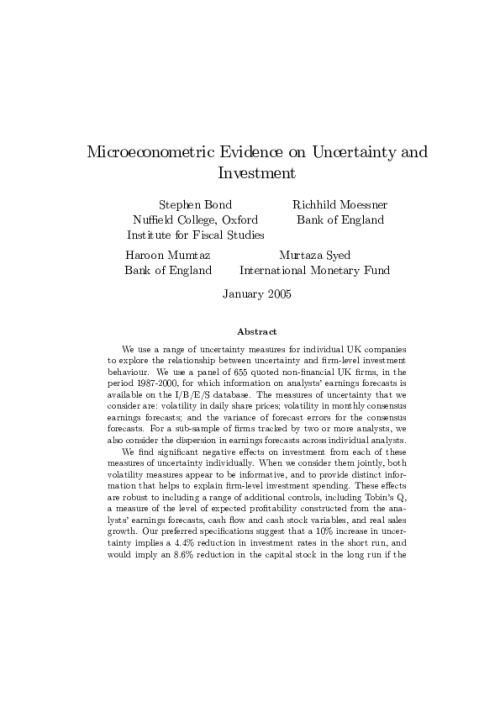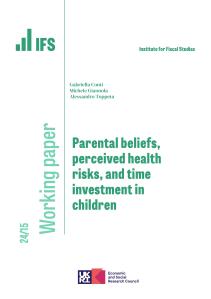We find significant negative effects on investment from each of these measures of uncertainty individually. When we consider them jointly, both volatility measures appear to be informative, and to provide distinct information that helps to explain firm-level investment spending. These effects are robust to including a range of additional controls, including Tobin\'s Q, a measure of the level of expected profitability constructed from the analysts\' earnings forecasts, cash flow and cash stock variables, and real sales growth. Our preferred specifications suggest that a 10% increase in uncertainty implies a 4.4% reduction in investment rates in the short run, and would imply an 8.6% reduction in the capital stock in the long run if the higher level of uncertainty was sustained. We do not find any significant diĥrences in the impact effect of sales growth on investment between firms facing diĥrent levels of uncertainty.
We use a range of uncertainty measures for individual UK companies to explore the relationship between uncertainty and firm-level investment behaviour. We use a panel of 655 quoted non-financial UK firms, in the
period 1987-2000, for which information on analystsearnings forecasts is available on the I/B/E/S database. The measures of uncertainty that we consider are: volatility in daily share prices; volatility in monthly consensus
earnings forecasts; and the variance of forecast errors for the consensus
forecasts. For a sub-sample of firms tracked by two or more analysts, we also consider the dispersion in earnings forecasts across individual analysts.










